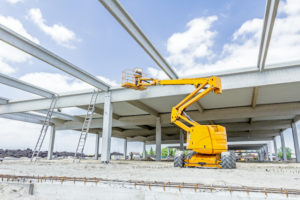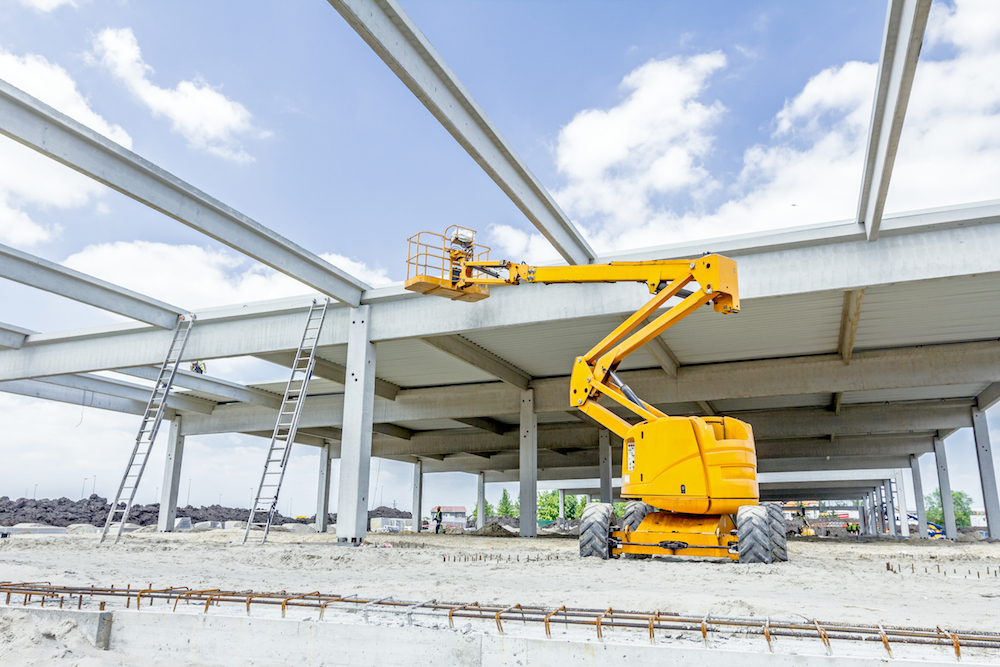
Mechanics lien laws are quirky. When work is being done for someone who doesn’t own the project property, the rules get even more confusing. New York is in the minority of states which has clarified when a mechanics lien can be filed for work for a tenant.
Mechanics liens and leased property, generally
This isn’t the first time we’ve covered this topic, and it probably won’t be the last. When construction work is done for a tenant, the contractors, subs, and suppliers working on the project might not always be entitled to file a mechanics lien on the project property.
Every state has its own rules, but typically: mechanics lien rights on the underlying property will only be available if the property owner has consented or actively participated in the improvement. Though, even if lien rights in the property might not be available, a claimant may be able to lien the lease.
For more high-level talk on the subject, this is a great article: What Happens to Mechanics Lien Rights If My Project is a Tenant Improvement?
The general rule for New York mechanics liens on leased property
New York has actually done a good job of establishing the rules for construction businesses who perform work for tenants. In fact, we’ve written on the subject a few times before – and you can find links to those articles at the bottom of this section.
Generally, the New York rule goes like this: A New York mechanics lien will only attach to the landlord’s interest in the property if that landlord consents to the improvement or requires that the improvements be made. The landlord’s involvement must be more active than mere knowledge or merely letting the tenant improve the property on their own. Typically, the terms of the lease will shed a lot of light, here.
This “rule” has come from New York’s courts, not the legislature. That means it’s crucial to stay on top of any cases relating to mechanics liens for tenant improvements in the state. With that in mind, let’s look at a recent telling case from the New York Court of Appeals which shows what kind of lease terms might leave an owner susceptible to lien claims.
More on New York mechanics liens and tenant improvements:
- Filing New York Mechanics Liens On Leased Property
- Filing New York Mechanics Lien When Tenant Commissioned Work Depends On Owner’s Consent
Ferrara v. Peaches Cafe
Gainen Carroll & Bertolotti LLP has an excellent breakdown of the case. You can also read a copy of the court’s opinion here, courtesy of Justia.
COR Ridge Road Company (“COR”) owned a commercial property, and Peaches Cafe (“Peaches”) signed a lease agreement with COR. Before Peaches could open its restaurant, significant work was need on the property. In fact, under its lease, Peaches was required to perform work prior to opening, and COR was required to be heavily involved in the process (more on that in a second). Peaches eventually hired Angelo Ferrara (“Ferrara”) to perform electrical work on the property.
Unfortunately, Peaches struggled to keep its doors open after work was complete. The cafe was unable to pay Ferrara in full for his work, leaving about $50,000 unpaid. As a result, Ferrara filed a mechanics lien on the project. Ferrara’s lien attached directly to the project property – not to the leasehold interest. As owners often do, COR challenged the lien in court.
The courts
Naturally, COR argued that the lien couldn’t attach to their property. COR claimed that they had not actively consented to the improvement of the property. Ferrara, of course, argued the opposite. Ferrara claimed that COR’s lease agreement with Peaches clearly consented to, and even required, Peaches to improve the property. As a result, according to Ferrara, COR’s ownership was susceptible to the lien.
The district court agreed with COR and tossed the case out simply because Ferrara hadn’t been hired directly by the owner. Luckily for Ferrara, the appellate court didn’t see it that way.
The appellate court found that COR was heavily involved in making the improvements happen and that Peaches was required to improve the property based on the lease with COR. Thus, Ferrara’s lien had properly attached to COR’s ownership interest.
Lease terms leaving the owner responsible for tenant’s improvements
Whether or not a landlord’s property will be susceptible to a tenant’s improvement in New York is highly dependent on the particular situation. Specifically, the terms of the lease will often shed a lot of light on whether the landlord will be susceptible to mechanics liens.
With that in mind, below is a list of some of the lease terms which pointed toward COR’s involvement in the improvement.
- Lease contemplated that lessee would improve the property
- The lessee couldn’t open until improvements were completed and the owner received relevant documentation
- No improvements could be undertaken without the owner’s approval
- Improvements had to be completed within 90 days
- The lessee was required to submit a construction schedule to the landlord
- Landlord included specific construction requirements in the lease
- The landlord was entitled to review, alter, and approve blueprints and project specs
- Landlord retained ownership of improvements after the termination of lease
What wouldn’t be enough to establish owner involvement?
Above, there are examples of what lease terms might lead toward an owner’s property being lienable for improvements made by their lessee. But, there’s a lot of grey area. Below are some examples of what wouldn’t create lien rights in the underlying property, by themselves.
- Landlord knowing their lessee was planning on improving the property
- Landlord noticing lessee improving the property, but not acting one way or another on that information
- Landlord letting their lessee improve the property at their own expense
- Lessee improving the property but will remove the improvement at the end of the lease
The court also used a great quote: “the owner must either be an affirmative factor in procuring the improvement to be made, or having possession and control of the premises assent to the improvement in the expectation that he will reap the benefit of it”
How can contractors know whether property is lienable from the start?
This part isn’t so easy. The above guidelines are really helpful for determining whether or not a lien can attach to the property, but they’re not particularly helpful from the start of the project. After all, how many contractors, subs, and suppliers will have access to the lease prior to working on the job? Or, how can they know whether they’ve been working for the owner or the owner’s tenant?
For commercial property, things may be a little easier. When the property is obviously being leased – like with one unit in a larger commercial complex, or with franchised businesses – the need for checking in on the property ownership info is a little more obvious. This can be generally done by simply asking the customer for a little more background on the job. Or, it might be done by looking at the permitting information for the job. Potentially, a customer might even be willing to share a copy of their lease. If the landlord doesn’t seem to be involved, there’s a fair chance a mechanics lien couldn’t attach to the underlying property.
For residential property, it might be hard to know whether the property is being leased at all – much less whether that lease would create mechanics lien rights in the landlord’s property. Still, working to better understand who the true owner of the property is and their involvement in the job could help here. But, as mentioned above, it can be hard to know exactly how involved the property owner is when working on leased property.
Related reading:
How to Find the Property Owner on a Construction Project
Bottom line
Mechanics liens on tenant improvements can be a tricky subject for landlords, lessees, and for construction businesses. At least for landlords and for lessees, New York courts have been providing some helpful guidelines through case law. So, it should be easy to determine whether or not a lien filed based on the tenant’s project would attach to the landlord’s title to the property. But for construction businesses – determining whether or not the project owner is leasing the property, then assessing the true owner’s involvement in the project may be the best way to make that determination.

